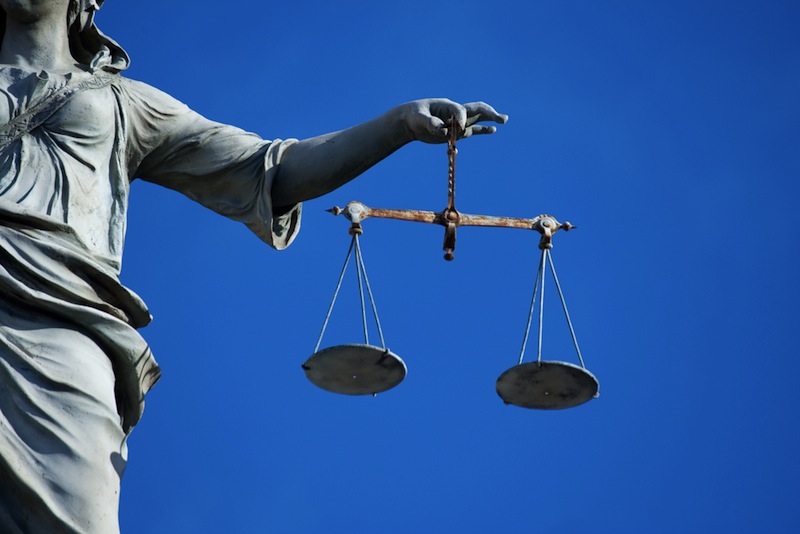Believers Leave Punishment to Powerful God

Believing in an involved, morally active God makes people less likely to punish others for rule-breaking, new research finds.
However, the researchers also find that religious belief in general makes people more likely to punish wrongdoers – probably because such punishment is a way to strengthen the community as a whole.
In other words, religion may introduce two conflicting impulses: Punish others for their transgressions, or leave it to the Lord.
Punishment is good for the community as a deterrent to criminals, cheats and liars. And research suggests that a desire for punishment is ingrained, with babies as young as 8 months preferring to see a wrongdoer punished.
But actually punishing someone is costly. Imagine a friend of yours says something nasty to another of your friends. As a bystander, you could punish Friend A by shunning her or telling her off — but it might cost you your friendship.
Punishment's costs add up on a societal level as well. Consumers looking to punish a company for bad business practices might have to buy a more expensive alternative or do without a product altogether. And the justice and prison systems aren't cheap, either. A report released in January by the nonprofit Vera Institute of Justice examined the corrections budgets of 40 states and found that in those states, the average annual cost of housing an inmate for a year was $31,166. The total cost of corrections for the 40 states combined came to almost $39 billion. [10 Contested Death Penalty Cases]
God and punishment
Sign up for the Live Science daily newsletter now
Get the world’s most fascinating discoveries delivered straight to your inbox.
To figure out what motivates people to shoulder these costs, doctoral candidate Kristin Laurin at the University of Waterloo in Ontario and her colleagues carried out a series of five studies with Canadian and American participants.
In one of these studies, participants played a game designed to measure how willing they were to give up cash for the chance to punish a wrongdoer. The participant thinks he or she is playing against two players. Player A gives a certain amount of money to Player B. If the participant thinks Player A's offer is unfair, he or she can pay real cash to take away Player A's stash.
The participants, 55 undergraduate students, filled out surveys about their religious beliefs either before or after playing this game. The ones who filled out the surveys first were more likely than the others to have religion on their minds when they went into the game.
The findings, published Tuesday (May 22) in the journal Proceedings of the Royal Society B, suggested that when people believed in a powerful, involved God and when they were reminded of that belief, they were less likely to punish Player A.
"It seems to be something about the idea that it's the responsibility of that powerful God to punish people who do things wrong, and it's not your responsibility as a human being," Laurin told LiveScience. [8 Ways Religion Impacts Your Life]
In a similar study, participants reminded of their belief in a powerful God were less willing to support state-sponsored punishment for a white-collar criminal.
Religious conflict
When researchers looked at religious beliefs alone, however, they found that people with stronger beliefs were more likely to punish others after being reminded of those beliefs.
It may be that the communal aspects of religion encourage people to support punishing wrongdoers, Laurin said, but then belief in God might be a way for people to drop the responsibility of punishment when they'd rather not take on the cost.
It's also possible that people who believe in a strong and powerful god might not want to step on the deity's toes by taking over the role of punisher, Laurin said.
How this push-and-pull between punishment and mercy plays out on a daily basis is still unknown. There are many reminders of religion in daily life, Laurin said, especially in courts of law, where witnesses swear on Bibles and promise to tell the truth "so help me God."
"It would be really interesting to look at a courtroom that does that and a courtroom that doesn't do that in terms of how punitive the outcomes end up being for people who are on trial," Laurin said.
You can follow LiveScience senior writer Stephanie Pappas on Twitter @sipappas.Follow LiveScience for the latest in science news and discoveries on Twitter @livescience and on Facebook.

Stephanie Pappas is a contributing writer for Live Science, covering topics ranging from geoscience to archaeology to the human brain and behavior. She was previously a senior writer for Live Science but is now a freelancer based in Denver, Colorado, and regularly contributes to Scientific American and The Monitor, the monthly magazine of the American Psychological Association. Stephanie received a bachelor's degree in psychology from the University of South Carolina and a graduate certificate in science communication from the University of California, Santa Cruz.










